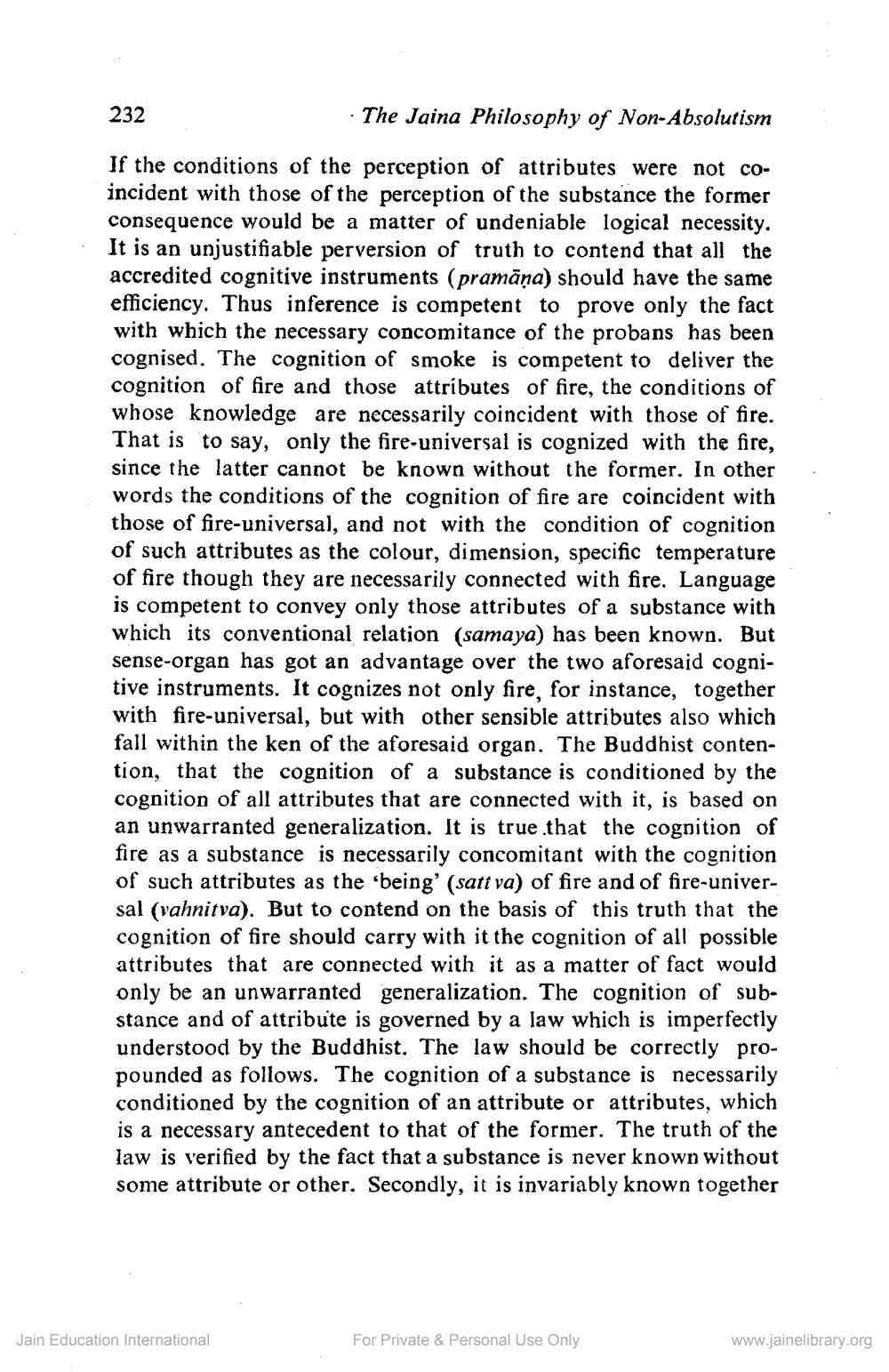________________
232
· The Jaina Philosophy of Non-Absolutism
If the conditions of the perception of attributes were not coincident with those of the perception of the substance the former consequence would be a matter of undeniable logical necessity. It is an unjustifiable perversion of truth to contend that all the accredited cognitive instruments (pramāņa) should have the same efficiency. Thus inference is competent to prove only the fact with which the necessary concomitance of the probans has been cognised. The cognition of smoke is competent to deliver the cognition of fire and those attributes of fire, the conditions of whose knowledge are necessarily coincident with those of fire. That is to say, only the fire-universal is cognized with the fire, since the latter cannot be known without the former. In other words the conditions of the cognition of fire are coincident with those of fire-universal, and not with the condition of cognition of such attributes as the colour, dimension, specific temperature of fire though they are necessarily connected with fire. Language is competent to convey only those attributes of a substance with which its conventional relation (samaya) has been known. But sense-organ has got an advantage over the two aforesaid cognitive instruments. It cognizes not only fire, for instance, together with fire-universal, but with other sensible attributes also whic fall within the ken of the aforesaid organ. The Buddhist contention, that the cognition of a substance is conditioned by the cognition of all attributes that are connected with it, is based on an unwarranted generalization. It is true that the cognition of fire as a substance is necessarily concomitant with the cognition of such attributes as the being' (satt va) of fire and of fire-universal (vahnitva). But to contend on the basis of this truth that the cognition of fire should carry with it the cognition of all possible attributes that are connected with it as a matter of fact would only be an unwarranted generalization. The cognition of substance and of attribute is governed by a law which is imperfectly understood by the Buddhist. The law should be correctly propounded as follows. The cognition of a substance is necessarily conditioned by the cognition of an attribute or attributes, which is a necessary antecedent to that of the former. The truth of the law is verified by the fact that a substance is never known without some attribute or other. Secondly, it is invariably known together
Jain Education International
For Private & Personal Use Only
www.jainelibrary.org




